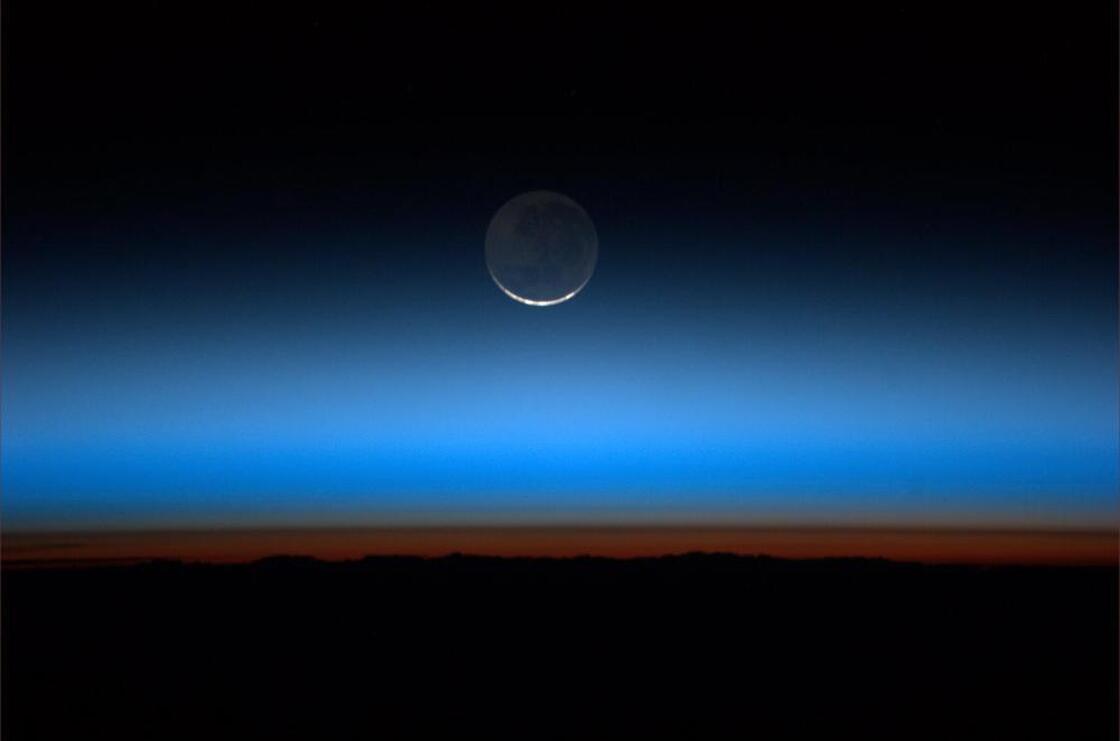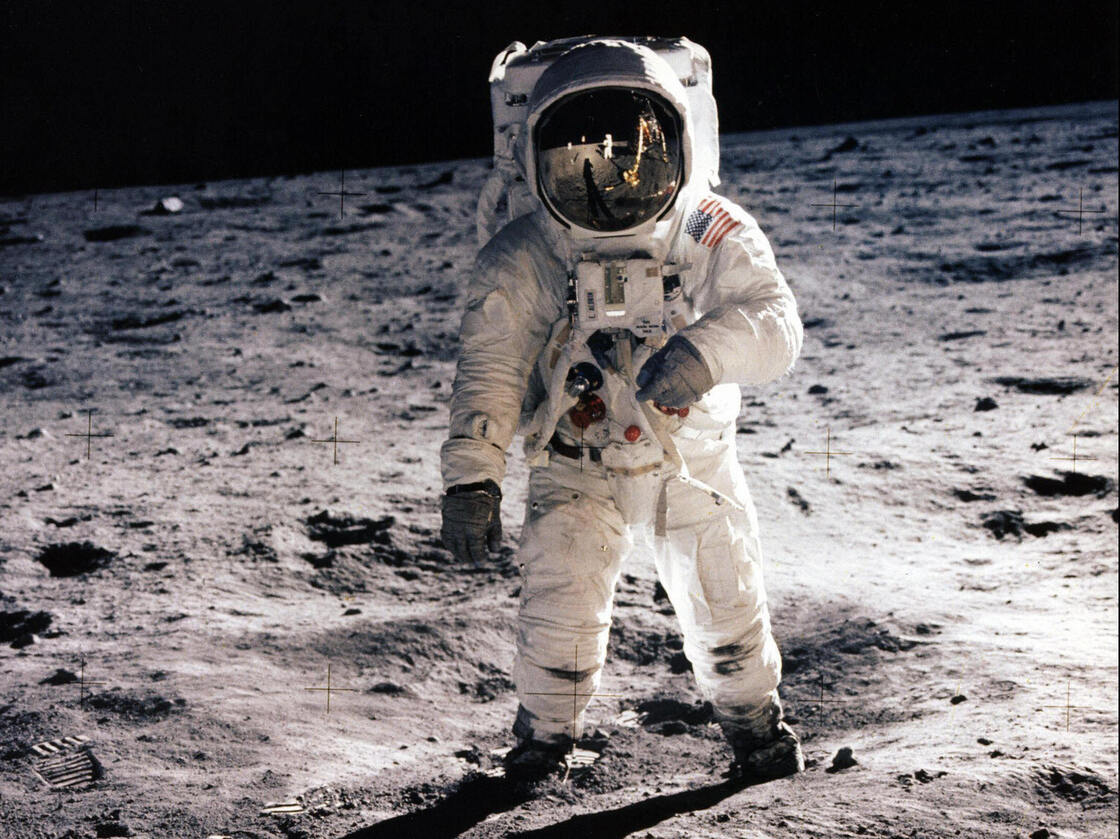The moon, seen from the International Space Station, on July 31.
NASA The moon, seen from the International Space Station, on July 31.NASA
The moon, seen from the International Space Station, on July 31.NASA Can astronauts Neil Armstrong and Buzz Aldrin's "giant leap for mankind" be permanently preserved? Two House Democrats want to do just that: They proposed a bill to create a national historic park for the Apollo 11 mission — on the moon. The legislation would designate a park on the moon to honor that first mission, as well as preserve artifacts from other lunar missions
But Rep. Donna Edwards of Maryland and Rep. Eddie Bernice Johnson from Texas might have a legal hurdle to memorializing those first lunar steps, taken 44 years ago on Saturday.
What countries can and cannot do on the moon is dictated by a body of international treaties, says Dr. Scott Pace, director of the Space Policy Institute at George Washington University. He tells NPR's Jacki Lyden that most of those agreements were negotiated during the "space race" with the Russians in the 1960s.
"Probably the most important one is the 1967 Outer Space Treaty," Pace says. "Nations cannot claim sovereignty over celestial bodies. So you can't plant a flag on the moon and claim it for the United States."
So, Pace says, it doesn't look like there will be a U.S. national park on the moon any time soon because the legislation appears to contradict international law.
Astronaut Buzz Aldrin walks on the surface of the moon during the Apollo 11 extravehicular activity on July 20, 1969.
NASA/AFP/Getty Images Astronaut Buzz Aldrin walks on the surface of the moon during the Apollo 11 extravehicular activity on July 20, 1969.NASA/AFP/Getty Images
Astronaut Buzz Aldrin walks on the surface of the moon during the Apollo 11 extravehicular activity on July 20, 1969.NASA/AFP/Getty Images "That being said, the issue that the legislation tries to address is, in fact, actually a real one," he says. "There are a number of historical sites on the moon that I think people would feel strongly about — not only American sites, but also Soviet and Russian sites. And arguably there will be other people there in the future."
In order to make way for these kinds of celestial memorials, countries would have to agree to new rules.
Without creating new laws, what are other ways to honor those famous first steps? Pace can imagine a way for tourists to experience the moment, even without actually going to the moon.
"One can imagine robotically controlled rovers roaming around on the moon. There are even more advanced proposals for landing people on the moon, but I think those are actually quite a ways in the future," he says. "But robotic rovers on the moon controlled by others who want to go and visit and sort of peer virtually at former lunar landing sites, that's certainly within the realm of possibility."
As for the broader future of human-space interaction, Pace envisions four possible scenarios: space colonies, Everest, Antarctica or a North Sea oil platform. Each of the models depends upon the answers to two fundamental questions, he says: "Can you live off the land?" and "Can you do anything to pay your way?"
If the answer to both of these questions is yes, then space colonies are possible. If the answer to both questions is no, then space is like Mount Everest: "People go there for adventure — even tourists go there — but nobody really lives there. It's a symbol."
If you can live off the land, but there's nothing commercially useful, "then space is like Antarctica," Pace says. "We have tourists, we have scientists and researchers, and it's an international cooperative effort, but again, no one lives there."
What if we can do something commercially useful, like mining, but the land is not inhabitable? You end up with something like a North Sea oil platform: You go there for business, but you don't live there.
"We don't really know which [scenario] is going to happen," Pace says. "And the purpose of exploration is to find out what kind of future — if any — humans have beyond the planet. That's one of the more profound questions I think we can ask."
No comments:
Post a Comment